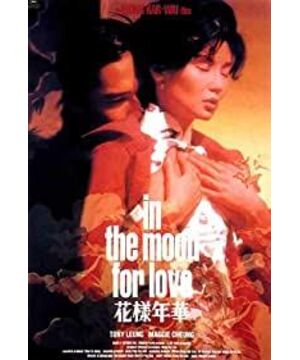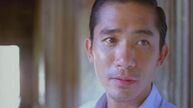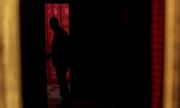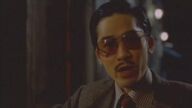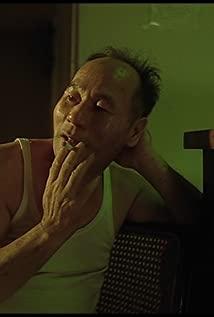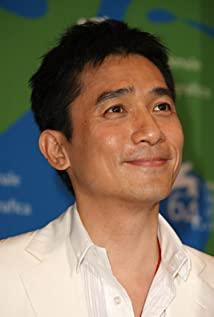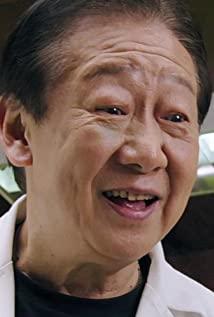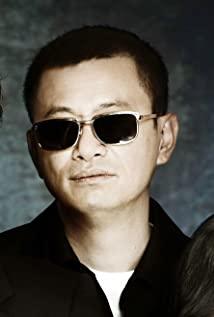The unrestored film has a simple texture that belongs to that time. In the mottled images, people live in a distant Hong Kong. When watching those old Hong Kong movies in the 1950s and 1960s, it is very strange that people and events of Zhou Xuan's era are always circling in my mind. This generation of red stars who died early once spent time in Shuangcheng, leaving behind memories of an era. If the old man at that time was still alive, this person must not be mentioned. Although I haven't been to Hong Kong at that time, from the corners and corners of the information books and images, there will always be some perceptual perceptions. At that time, Hong Kong films were always traditional and lovely. Take Zhu Shilin's "One Year Plan" filmed in Hong Kong in 1955 as an example. The story is so simple that it is almost childish: the parents between sister-in-law, mother-in-law, and brothers are short-lived, and the theme also has a strong didactic sense of early domestic films. Although there is no obvious sign about Hong Kong in the film, it more faithfully records the people of Hong Kong at that time. Judging from the film, Hong Kong at that time did not have the prosperity of the Pearl of the Orient at that time, but there was a small growing up. Tranquility and leisure in fishing villages: People are noisy and prosperous here. Even if there are unavoidable disputes and disputes in life, even the love and hatred that arises one after another, they can always return to peace in the end and find refuge in the family's harbor. Peaceful. I have always believed that once in a certain time dimension, in a still beautiful place, there was such a story: technology is almost backward, high-rise buildings have not been pulled up, money has not yet become emperor, the world will not be too hot, people live I am so embarrassed that I will be happy for a long time for a piece of moon cake, and I will cry sadly for the sake of love, and I will unabashedly denounce incorrect people and things. . . So that it seems incomprehensible to people today. Wong Kar-wai's nostalgia is deep in his bones. After he moved to Hong Kong with his family from Shanghai, what kind of expectations and encounters he had for this virgin land surrounded by mountains and the sea is unknown. However, with the passage of time, he still did not forget the port capital of that place that he remembered in his childhood. Wong Kar-wai once said frankly that the source of inspiration for "In the Mood for Love" was the song "In the Mood for Love", which was also the name of a Hong Kong movie she starred in. Even after the success of "In the Mood for Love", he edited a 4-minute short documentary about Hong Kong in the 1960s, and the whole music was "In the Mood for Love". Although the movie "In the Mood for Love" belongs to the 1960s, it was a few years behind Hong Kong in 1955, but the scenery and people at that time were not much different. This is a very personal Wong Kar-wai film. As he said, he will never be able to return to Hong Kong at that time, but he tries to present Hong Kong at that time to people through an almost flawless freehand image. noteworthy The thing is, he did not restore it, but recreated it: the mottled wall was affixed with an advertisement of a cheongsam woman's heavily made-up portrait, the landlord and the tenant played mahjong without any hesitation as a family, and the dim light alley was filled with lazy rain. After the mood, the pedestrians formed a circle in front of the chaotic stalls to chat and taste with relish, and the French music in the coffee shop looked at each other, and people went to get off work, cook, eat, go shopping and watch movies calmly. . . In the lens, Maggie Cheung's swaying style is vividly displayed on the noble, elegant and Chinese-style cheongsam. The deep affection and cowardice of Zhou Muyun, played by Tony Leung, and the entanglement and hesitation of "love but not love", bring ancient China The reserved and reserved literati. . . Maybe Hong Kong at that time was not necessarily as spotless as in the movie, and Hong Kong people at that time were not necessarily so romantic and simple. But in the heart of a child who is still attached to that era, all of this was real. In "The Thief of the Years", the mother played by Wu Junru always recites one sentence: Always believe in being a person. Well, always believe it. It’s okay if the house collapsed in the rainstorm, it’s okay for my son to get sick and die, it’s okay for the family to have no money, it’s okay to have a poor life, it’s okay for the business to fail, it’s okay for the economy to be bad. . . It's nothing. With tears in the eyes, the whole family worked together to support it. It's not because of stupidity or self-deception, it's just because you have to believe in life. The reason why Hong Kong people can create a miracle of development that shocks the world, and can be proud of, is this kind of self-esteem and self-confidence. Although they are poor, they have never forgotten their backbone. Although they have endured the torment of life, they have never thought of raising their hands to surrender or harm others. This is a kind of self-confidence that is almost narcissistic. At that time, Hong Kong people were willing to endure hardships, work hard, know how to be flexible, and have a good mind. There is no reason why they could not find a bright future. It can be said that Hong Kong in the 1950s and 1960s was a hot-blooded teenager with countless dreams and aspirations. The biggest thief in "The Thief of the Years" is undoubtedly time, taking away all the good and bad memories. Although the young and handsome eldest brother left suddenly, the days continued. At the end of the film, the parents led the younger brother to live strong. It must be said that Hong Kong at that time, like a big brother, has lived forever in the hearts of a generation. As the theme song sings. The water-like youth, the wind-like song, the dreamlike reverie, the old you and me, we saw each other with a wave of our hand, our mouth, our mouth, and our feet moved. . . "The Thief of Time" was a love letter to Hong Kong at that time, and it was essentially the same as "In the Mood for Love" written by Wong Kar-wai to Hong Kong at that time. mid-century Hong Kong has many dreams and glory, but also endless vicissitudes and ups and downs. Looking back now, everything seems like a dream, just like those Hong Kong movie legends that have left us so shattered. In general, these old Hong Kong films at that time were the base and source of "In the Mood for Love", and also the retrospective and support of "The Thief of the Years". The Hong Kong of that era is bound to be impossible to return, but it is still haunting, and it is worth remembering and reproducing over and over again.
View more about In the Mood for Love reviews


